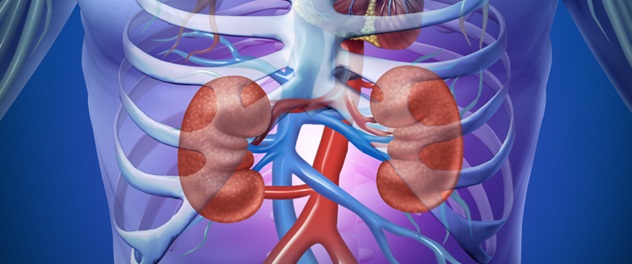-

Finding new solutions
Investigators in the Division of Nephrology and Hypertension Research conduct basic science and clinical research to better understand, diagnose and treat numerous conditions related to high blood pressure and kidney problems.
Overview
The Division of Nephrology and Hypertension Research brings together scientists and healthcare professionals pursuing better treatments for kidney conditions and high blood pressure. Our investigators conduct both basic science research and clinical studies to advance understanding about the causes and progression of a wide range of conditions. The diversity of our research disciplines, robust collaborations and alignment with clinical areas enable our team to make significant contributions to the science that lead to improved care and treatment.
Our goal is to define novel agents and methods for diagnosis, prevention and treatment and to ultimately eliminate the personal and societal burdens related to kidney conditions and high blood pressure.
The wide scope of research in the division reflects the broad nature of the field of nephrology and hypertension. Conditions we investigate include:
- Dent disease.
- Diabetes.
- Dialysis.
- Glomerular diseases.
- High blood pressure.
- Kidney and kidney-pancreas transplantation.
- Kidney cancer.
- Kidney failure.
- Kidney regeneration.
- Kidney stones.
- Mineral metabolism.
- Polycystic kidney disease (PKD) and other inherited renal diseases.
Many of our basic science research initiatives are housed in the integrated Nephrology Research Unit at Mayo Clinic's campus in Rochester, Minnesota. The consolidated unit enables close interaction among principal investigators and improves access for scientists to core facilities. The integration of research and practice allows rapid translation of scientific discoveries into improved clinical care.
Robust research education opportunities
Our division also facilitates world-class nephrology education, producing the next generation of expert nephrology and hypertension scientists and healthcare professionals. The Nephrology Fellowship at Mayo Clinic College of Medicine and Science in Rochester, Minnesota, provides outstanding nephrology training in all aspects of clinical practice, research and education.
In addition, postdoctoral research in the division is supported by the Kidney Disease Research Training Program This training grant program, which has been sponsored by the National Institutes of Health since 1975, prepares scientists for careers in academic nephrology and basic renal sciences.